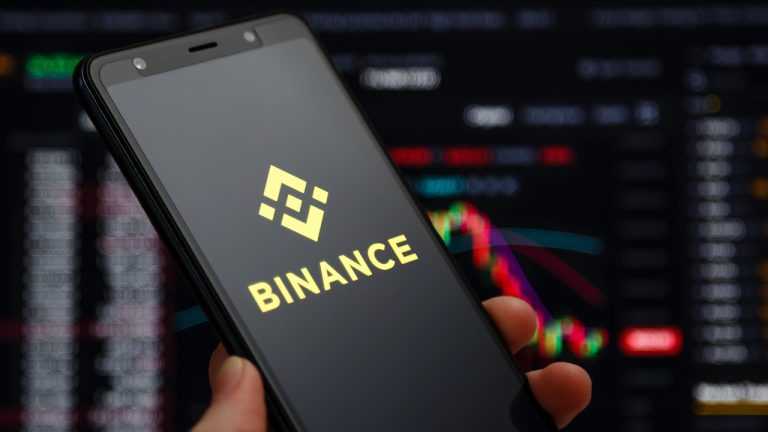 After the U.S. Commodity Futures Trading Commission sued Binance for alleged violations of trading and derivatives rules, a significant amount of cryptocurrency was withdrawn from the exchange. Data from analytics provider Nansen shows $400 million in Ethereum-based funds were withdrawn in 24 hours, and 3,655 bitcoin worth more than $99 million were withdrawn over the […]
After the U.S. Commodity Futures Trading Commission sued Binance for alleged violations of trading and derivatives rules, a significant amount of cryptocurrency was withdrawn from the exchange. Data from analytics provider Nansen shows $400 million in Ethereum-based funds were withdrawn in 24 hours, and 3,655 bitcoin worth more than $99 million were withdrawn over the […]
Within the 74-page complaint, the CFTC has labeled Ether, Binance USD, Tether and Litecoin as commodities along with Bitcoin, and made a few other startling claims.
The surprise lawsuit from the Commodity Futures Trading Commission (CFTC) against crypto exchange Binance sent shock waves across the markets today.
In addition to allegations of market manipulation and a lack of compliance effort, the regulator has also accused the exchange of not cooperating with investigative subpoenas and obscuring the location of its executive offices. Binance has rejected many of the allegations.
However, the devil is in the details when it comes to the 74-page complaint. Here are a few interesting snippets you may have missed.
Contrary to assertions by the United States Securities and Exchange Commission chief Gary Gensler on crypto assets, the latest CFTC lawsuit has labeled Bitcoin (BTC), Ethereum (ETH), Litecoin (LTC), and Tether (USDT) and Binance USD (BUSD) as commodities.
Earlier this year, the SEC argued that BUSD is an “unregistered security” in its Wells notice against Paxos. Gensler on many occasions has also argued that virtually all crypto assets are securities, with the exception of Bitcoin.
BTC: commodity
— scott➕ (@scott_lew_is) March 27, 2023
ETH: commodity
LTC: commodity
USDT: commodity
BUSD: commodity
- the CFTC pic.twitter.com/Y3qi6vDmTA
Sheila Warren, CEO of the Crypto Council for Innovation said the statement is a “powerful shot across the bow of the SEC” and could have significant implications for the industry and for which regulator will have ultimate authority.
Meanwhile, Coinbase Chief Legal Officer Paul Grewal criticized the lack of agreement between the two U.S. regulators, stating:
“A security can apparently also be a commodity, except when it's not. And it depends on which regulator you ask, and when. If you're confused, you are not alone. Is this really the best American law has to offer?”
Binance CEO Changpeng Zhao has been named as a defendant and has been repeatedly singled out throughout the complaint.
Interestingly, the CFTC stated it was been able to gather evidence by collecting Signal text chains and group chats from “Zhao’s telephone.” Many are now wondering how this was possible.
How do they have acces to CZ phone? pic.twitter.com/FWMeKVCGSZ
— Martin Krung (@martinkrung) March 27, 2023
“Zhao has communicated over Signal with the auto-delete functionality enabled with numerous Binance officers, employees, and agents for widely varying purposes,” said the CFTC.
Another startling allegation from the commodities regulator accuses the firm's employees of knowing that its platform had facilitated "illegal activities."
“Internally, Binance officers, employees, and agents have acknowledged that the Binance platform has facilitated potentially illegal activities.”
It specifically referred to a February 2019 incident in which former compliance chief Samuel Lim received information “regarding HAMAS transactions.” According to the filing, Lim explained to a colleague that terrorists usually send “small sums” as “large sums constitute money laundering.”

According to the complaint, the CFTC has alleged Zhao owned and controlled dozens of entities that operate the Binance platform as a “common enterprise.”
It cited an example of the CEO personally approving minor office expenses and paying for company services such as Amazon Web Services with his own personal credit card.

Meanwhile, a Binance “VIP” program with preferential rates and perks has also been scrutinized by the regulator.
In addition to allegedly encouraging customers to use virtual private networks (VPNs) to access the platform, the CFTC also alleged that part of the perks for VIP customers was that they were given “prompt notification” of any law enforcement inquiry about their account.

“Zhao wanted U.S. customers, including VIP customers, to transact on Binance because it was profitable for Binance to retain those customers,” it alleged.
The CFTC also accused Binance of being aware of U.S. regulatory requirements but ignoring them and making “deliberate, strategic decisions to evade federal law.”
The filing goes back to internal messages between Binance executives in 2018 regarding its strategy for the U.S. exchange and complying with sanctions imposed by regulators for the global exchange.

Towards the end of the document, the commodities regulator said it is seeking monetary penalties, disgorgement of any trading profits, salaries, commissions, loans, or fees gained from their purportedly wrongful actions, along with paying penalties to resolve the investigations.
It also orders a permanent injunction against further violations.
15/ The CFTC is also asking for clear action including disgorgement, civil monetary penalties and permanent trading and registration bans.
— Henri Arslanian (@HenriArslanian) March 27, 2023
Following such a complaint, will Binance be permitted to operate again in the US or have US clients again?
Related: Binance CEO CZ rejects allegations of market manipulation
The CFTC “doesn’t waste its time on jabs — it goes straight for the knockout,” said Warren from the Crypto Council for Innovation.
Binance has already rejected a number of allegations and claims from the commodities regulator, hinting that a more in-depth response is incoming.
On March 28, CZ responded to what he termed an “unexpected and disappointing civil complaint,” stating that the company has cooperated with the CFTC for the past two years.
In comments to Cointelegraph, a spokesperson from Binance has maintained that the exchange maintains country blocks for U.S. citizens, regardless of where they live in the world.
“Consistent with regulatory expectations globally, we have implemented a robust ‘three lines of defense’ approach to risk and compliance, which includes, but is not limited, to:

The suit claims Binance used Ether as a commodity in its financial products, experts explained, which says little about the basic nature of the coin.
The United States Commodity Futures Trading Commission filed suit against Binance on March 27 for violations of the Commodities Exchange Act and CFTC regulations. Those violations included transactions with Ether (ETH), according to the suit. This claim, at first glance, touched on a notable point of contention between the CFTC and Securities and Exchange Commission.
The CFTC claimed in its suit that Binance engaged in transactions with “digital assets that are commodities including bitcoin (BTC), ether (ETH), and litecoin (LTC) for persons in the United States.” That was not a new position for the agency. The CFTC claimed ETH was a commodity in its suit against FTX in December, and Chair Rostin Behnam stated his opinion that ETH and stablecoins were commodities as recently as March 8 in a Senate hearing.
The CFTC position on ETH was fairly uncontroversial before the Ethereum Merge. After Ethereum moved to a proof-of-stake consensus mechanism, SEC Chair Gary Gensler commented on staking coins, saying that “from the coin’s perspective, […] that’s another indicia that under the Howey test, the investing public is anticipating profits based on the efforts of others.”
Gensler’s comment brought on a slow wave of reactions. In February, for example, Ethereum co-founder and crypto entrepreneur Joseph Lubin told Cointelegraph, “Staking is not a security,” and it would be a “terrible path for the U.S.” to make it so. He added that he thought the U.S. courts would agree with him and that “there would be a tremendous outcry from not just the crypto community but different politicians and certain regulators” if ETH were classified as a security.
Related: CFTC head looks to new Congress for action on crypto regulation
The CFTC case against Binance does not rest on the nature of ETH as much as the nature of Binance products, however, limiting its applicability to the larger argument.
“In this particular case, ETH is being treated as a ‘commodity’ rather than a ‘security,’” Timothy Cradle, director of regulatory affairs at Blockchain Intelligence Group, told Cointelegraph. “The complaint references securities as they relate to swaps.” Cradle added:
“The economics of an offering including ETH could still change the definition applied to the token. For example, ETH staking could still be construed as an investment contract, and as such a security.”
Some transactions, such as mixed swaps involving ETH, could be subject to regulation by both the SEC and CFTC, Cradle said, but that “would not necessarily define ETH itself as a security as mixed swaps also include commodities and currencies.”
This more complex approach to regulation would not necessarily imply cooperation between the two agencies. Yankun Guo, a partner at law firm Ice Miller, said of the situation in a statement to Cointelegraph:
“It shows that both the multifaceted nature of how tokens function and how they are used can cause them to fall under multiple agencies’ jurisdictions. […] I wouldn’t be surprised to see a similar lawsuit by the SEC naming all the same tokens except BTC as securities.”
Silver lining
— sassal.eth (@sassal0x) March 27, 2023
The CFTC suit against Binance states that ETH is a commodity
Task failed successfully pic.twitter.com/8HiF8LUOoi
Magazine: Can you trust crypto exchanges after the collapse of FTX?

The Commodities Future Trading Commission (CFTC) has charged crypto exchange Binance and its CEO Changpeng Zhao (CZ) with a long list of regulatory violations, sending uncertainty through the digital asset markets. In a press release from the CFTC, Chairman Rostin Behnam says Binance knowingly broke CFTC rules and has been actively avoiding compliance. “Today’s enforcement […]
The post CFTC Goes After Binance and Changpeng Zhao With Lawsuit, Bitcoin (BTC) and Crypto Markets Get Rocked appeared first on The Daily Hodl.
 The world’s largest crypto exchange by trade volume, Binance Holdings Ltd., has been sued by the U.S. Commodity Futures Trading Commission. Binance CEO Changpeng Zhao has been named in the lawsuit and the charges claim the crypto exchange broke several trading and derivatives rules. The lawsuit also names Binance’s former chief compliance officer, Samuel Lim, […]
The world’s largest crypto exchange by trade volume, Binance Holdings Ltd., has been sued by the U.S. Commodity Futures Trading Commission. Binance CEO Changpeng Zhao has been named in the lawsuit and the charges claim the crypto exchange broke several trading and derivatives rules. The lawsuit also names Binance’s former chief compliance officer, Samuel Lim, […]
The cryptocurrency exchange and its founder, Changpeng Zhao, have allegedly violated trading and derivatives rules.
The United States Commodity Futures Trading Commission has filed suit against Binance and CEO Changpeng “CZ” Zhao for trading violations, according to a Bloomberg report. The suit was filed in the U.S. District Court for the Northern District of Illinois.
According to the CFTC, Binance failed to meet its regulatory obligations by not properly registering with the derivatives regulator. The cryptocurrency exchange has been the focus of a CFTC investigation since 2021. The exchange acknowledged in February that it would likely face regulatory action in the United States and was already working with regulators.
In addition to the CFTC, Binance has been under investigation by the Internal Revenue Service and federal prosecutors, who have examined the exchange’s adherence to Anti-Money Laundering rules. Meanwhile, the Securities and Exchange Commission has been investigating whether Binance allowed U.S. traders to access unregistered securities.
Binance is the biggest cryptocurrency exchange with over $8.5 billion trading volume daily.
This is a developing story, and further information will be added as it becomes available.

The White House isn’t doing any favors for derivatives traders by turning a blind eye to the biggest players in the space.
The White House released its annual economic report on March 20, and it dedicated an entire section to digital assets.
The authors should be commended for doing so. I largely agree with the report’s assessment that certain aspects of the digital asset ecosystem are causing problems for consumers, financial systems and the environment.
However, as a builder in the digital asset space, I cannot disagree more with its conclusion that “crypto assets currently do not offer widespread economic benefits.”
To understand how the White House plans to regulate digital assets, it’s important to examine what was left out of the White House report. A particularly out-of-touch piece of data that made the report was a list titled, “Top Ten Crypto Derivative Platforms by Open Interest.” It included offshore exchanges including BingX, Deepcoin and BTCC Futures.

While most digital asset proponents would agree with the report that these exchanges are not reputable by any means, and open interest is a metric that is trivially easy to manipulate, it’s neither here nor there. The real issue is why the White House report chose to focus on offshore exchanges that have no checks and balances and aren’t even open to United States-based users.
What’s more revealing is the fact that they choose to completely ignore the largest derivatives product that is available to U.S.-based users, one that has been vetted and received approval from the Commodities Futures Trading Commission to launch in a safe and regulated manner: the Bitcoin (BTC) and Ether (ETH) futures offered by the Chicago Mercantile Exchange (CME).
Related: What Paul Krugman gets wrong about crypto
The CME is an entity that is fully compliant with all U.S. laws and regulations and, with the recent launch of the Micro Bitcoin and Micro Ether futures, has made it possible for retail investors to access a safe, regulated and U.S.-based futures derivative product.
Why would they choose to omit the mention of the CME?
Could it be because the CME can only list commodities, putting into question the Securities and Exchange Commission’s position that ETH is a security?
Furthermore, none of the platforms mentioned by the White House have any name recognition among crypto-native investors. While this could be attributed to the fact that there are relatively few derivative exchanges on the market and that none of these exchanges seem to have filled the void left by FTX, another omission is very telling.
The White House report also fails to mention Deribit, the largest options exchange by volume and open interest. Based in the Netherlands but unavailable to U.S. users, the company is focused on education and outreach and is far more transparent than most on the market. So, why was it not included?
The White House is purposefully excluding any legitimate businesses from the list of derivative platforms, a position that is likely taken in order to paint digital assets as shadowy, unsafe assets.
Derivatives, such as futures and options, are a core component of any financial system. The U.S. — and White House — would benefit from a thriving digital asset economy that includes derivatives and options markets. And I do agree that the exchanges listed in the White House report are indeed quite risky.
But what the White House is missing is that there is a better alternative, one that cannot be swept under the rug anymore and one that is transparent, noncustodial, cryptographically secure and fully open-source: decentralized finance (DeFi).
DeFi is fully noncustodial and has no intermediaries, so there are no “entities” to regulate because users are always in control of their funds. In addition, most DeFi uses collateral requirements and limits access to leverage: All lending protocols are overcollateralized, and the balance is instantly auditable, as opposed to fractional reserve banking.
Related: Did regulators intentionally cause a run on banks?
The lack of regulatory clarity from the U.S. SEC and CFTC stifles innovation in the derivatives space.
Most DeFi protocols can and should plan to follow the guidelines of self-regulatory organizations such as the Financial Industry Regulatory Authority to protect all users. Clearly stated regulations have a place in any industry, but regulation by enforcement stifles innovation. I’m seeing this firsthand as a builder in the digital asset space, and the lack of clarity is making it impossible for any U.S.-based entity to even tap into the U.S. market.
Digital asset proponents know about previous financial crises. Most of us lived through the hellscape that unfolded post-2008 due to bank deregulation. Our goal is to rebuild the financial infrastructure from the ground up, in the most transparent and securest way possible. DeFi is backed by mathematically unbreakable encryption, and centralized exchanges based offshore are the shadow banks of this generation.
Builders in the DeFi space want to create the most secure financial system in history. We want to empower citizens of the world, not private banks or runaway financiers.
And despite what U.S. regulators may think, we are willing to work with governments, central banks and regulators. We just need to know you’re arguing in good faith.
This article is for general information purposes and is not intended to be and should not be taken as legal or investment advice. The views, thoughts and opinions expressed are the author’s alone and do not necessarily reflect or represent the views and opinions of Cointelegraph.

Executives from some of crypto’s top firms have been tapped by the Commodity Futures Trading Commission (CFTC) to be a part of a new technology advisory group. In a new announcement, the CFTC says it’s shuffling up the membership of its Technology Advisory Committee (TAC), which was created in 1999 to advise the Commission on […]
The post Executives From Circle, Ava Labs and Fireblocks Recruited by CFTC to New Tech Advisory Group appeared first on The Daily Hodl.

The technology advisory committee aims to assist the CFTC in “identifying and understanding the impacts and implications of technological innovation in financial services and markets.”
The Commodity Futures Trading Commission has signaled receptiveness to the crypto and blockchain sector after including several executives from the space as part of its new Technology Advisory Committee (TAC).
CFTC commissioner and TAC sponsor Christy Goldsmith Romero announced the updated membership via a public statement on March 13, with the inaugural meeting of the new committee set to take place on March 22.
The TAC itself was formed in 1999 and aims to assist the CFTC in “identifying and understanding the impacts and implications of technological innovation in financial services and markets.”
“The TAC may inform the Commission’s consideration of technology-related issues in support of its mission to ensure the integrity of derivatives and commodities markets and the achievement of other public interest objectives,” the announcement reads.
Today @CFTCcgr announced the membership of the newly constituted Technology Advisory Committee, its Chair, and Vice Chair. Learn more: https://t.co/9sYxiLiiJE
— CFTC (@CFTC) March 13, 2023
The TAC also has the potential to provide advice on tech investments that “could support the Commission in meeting its surveillance and enforcement responsibilities.”
Former White House official Carole House will serve as the chair of the committee, with Ari Redboard, the head of legal and government affairs at blockchain intelligence firm TRM Labs, serving as the vice chair.
Other crypto-related members include Ava Labs founder and CEO Emin Gün Sirer, Circle vice president of global policy Corey Then, FireBlocks co-founder and CEO Michael Shaulov, Inca Digital CEO Adam Zarazinski and blockchain auditor Trail of Bits co-founder Dan Guid.
I'm thrilled to have been appointed to the CFTC's Technical Advisory Board. I'll do everything I can to move the space forward, inform regulators about the latest developments in crypto, and bring the benefits of blockchains to our financial system.https://t.co/5RpC1pb8Sd
— Emin Gün Sirer (@el33th4xor) March 13, 2023
Outside of crypto, executives from major companies such as IBM, Amazon, the CME Group and Cboe Global Markets have also been included in the TAC. There is also a strong showing of professors from university law schools such as Cornell and the University of Michigan.
As part of the announcement, Goldsmith Romero emphasized the importance of working with members from private tech and other organizations to regulate and protect the commodities/futures market:
“To protect our markets from increasingly-sophisticated cyber attacks, to ensure responsible development of digital assets in a way that protects customers, and to ensure that the implications of emerging technologies like artificial intelligence are well understood, the Commission requires advice from technology experts.”
“These experts can provide us foundational knowledge about the technology, as well as the complex and nuanced impacts and implications of technology on financial markets,” she added.
Related: Biden vows to hold accountable those responsible for SVB, Signature collapse
The collaborative approach from the CFTC appears to be in stark contrast to that of the other U.S. agencies, such as the Securities and Exchange Commission, which has reportedly acted frostily toward crypto firms behind closed doors.
Executives such as Coinbase CEO Brian Armstrong, Kraken co-founder Jesse Powell and Custodia Bank CEO Caitlin Long have all highlighted issues with trying to proactively work with the SEC and the government over the past couple of years.